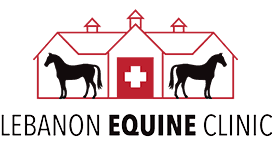
Lebanon Equine Services
Serving Horses Throughout Warren County & Beyond
The Lebanon Equine Clinic works with horse owners throughout Warren County and beyond. In the years since our founding in 1958, we’re honored to have grown into one of the largest clinics in the area.
Call our Lebanon Equine Veterinary Service Technicians today at (513) 540-3113 or reach out here online to schedule an appointment.

Versatile Veterinary Treatment
Professional Veterinary Care For your horseOur Services
Wellness and Preventative Care
We prioritize preventative care to achieve optimal health and well-being for your horses.
We offer a range of services aimed at promoting their overall wellness and longevity:
- Vaccinations play a role in protecting horses from infectious diseases. Our team provides essential vaccinations safeguarding against common illnesses such as influenza, tetanus, Eastern and Western equine encephalitis, and more. By staying up to date with vaccinations, you can significantly reduce the risk of your horse contracting these potentially life-threatening diseases.
- Equine dental care is another important aspect of preventative wellness. Regular dental check-ups are essential to maintaining your horse's oral health. We perform comprehensive examinations, teeth floating, and other necessary procedures to enable proper chewing, digestion, and overall comfort for your horse.
- Proper nutrition is key to keeping your horse healthy and fit. Our team offers nutrition counseling services with good advice tailored to your horse's specific needs. We guide you in creating a balanced diet that meets their nutritional requirements and promotes optimal growth, performance, and overall well-being.
- Parasite control is a vital part of equine health. We implement effective strategies, including regular fecal testing and customized deworming programs for each horse. Monitoring and managing parasites, we help prevent infestations leading to weight loss, digestive issues, and other health complications.
Investing in preventative wellness care through our pre-purchase exams gives your horses the best chance at a healthy and happy life.
Diagnostic Imaging and Radiology
Diagnostic radiology and ultrasounds are essential tools in equine internal medicine. These diagnostic imaging techniques provide valuable insights into the horse's internal structures, aiding in identifying and understanding potential issues.
We work with a range of diagnostic tools, from ultrasound and radiography to CT scans, MRIs, and endoscopy. Our combination of cutting-edge technologies and the incorporation of outside lab test screening all aim to keep your horses healthy and happy.
Equine Regenerative Therapy
Equine regenerative therapies have had a major impact on our field.
Four notable forms of equine regenerative therapy are Pro Stride AP, stem cell therapy, shockwave therapy, and cold laser therapy:
- Pro Stride AP is a device that concentrates the healing properties found in a horse's own blood. This autologous protein solution (APS) can effectively manage equine lameness and arthritis. Pro Stride AP offers a safe and drug-free alternative to traditional steroid joint injections, providing long-lasting pain relief by harnessing the horse's natural healing abilities.
- Stem cell therapy involves harvesting stem cells from the horse's bone marrow and utilizing their regenerative potential. These cells can differentiate into various tissue types, such as bone, cartilage, fat, and fibrous connective tissue. Stem cell therapy is commonly used to treat soft tissue injuries and promote better, stronger healing in horses.
- Shockwave therapy utilizes high-energy pressure waves to stimulate healing in soft tissue injuries. It is particularly effective in promoting the repair of tendons, ligaments, and muscles. Shockwave therapy accelerates the healing process and reduces pain and inflammation in horses by enhancing blood flow and cellular metabolism.
- Cold laser therapy stimulates tissue repair and provides pain relief. This non-invasive treatment uses light energy to penetrate deep into tissues and promote cellular regeneration. Cold laser therapy can be used with conventional medications and supplements to enhance healing outcomes.
These forms of equine regenerative therapy offer real potential for managing pain, promoting healing, and improving the overall well-being of your horses.
Serving You & Your Horses
Our clinic's Lebanon equine veterinary service professionals are passionate about what they do. We love horses and want to see them contented and healthy. We want their owners to have peace of mind. That’s why we work hard to stay on top of the newest technological developments in our field—so we can offer excellent diagnosis and reliable treatment plans.
Call the Lebanon Equine Clinic today at (513) 540-3113.

Hear From Our Clients
-
“Honest, straightforward, and actually care about both you and your horse.”
Laura F. -
“I wouldn’t go to any other place! This group is the best! They are always so friendly and caring and they know what they are doing!”
Francie S.
What sets us apart from the rest
-
24/7 Veterinary CareWith our multi-doctor practice, a veterinarian is available 24/7 to provide care for your equine companions, even in case of emergency.
-
Diverse Practice
With our multi-doctor practice, a veterinarian is available 24/7 to provide care for your equine companions, even in case of emergency.
-
More Than Just Veterinary Professionals
We are more than just veterinary professionals, we ourselves are pet owners. We strive to provide veterinary care with compassion, understanding and respect.
-
Experienced Doctors and Trained StaffOur doctors are Fear-Free Certified and highly established as well as experienced. Our entire staff is certified in Safe Handling.

